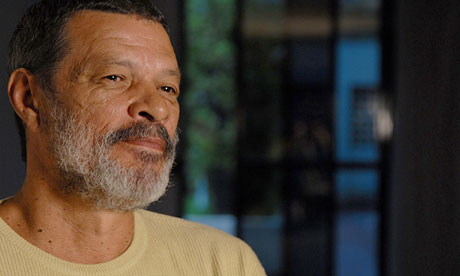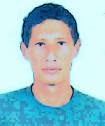Segue na íntegra a entevista concedida por Sócrates, capitão da seleção brasileira na Copa de 1982, ao jornal inglês The Guadian (www.guardian.co.uk/theobserver/2010/jun/13/socrates-brazil-football-world-cup). A entrevista foi concedida ao repórter Alex Bellos, correspondente do jornal no Brasil.
Antes de lhes oferecer a postagem, devo pedir perdão por não lhes oferecer tradução. O motivo é a falta de tempo. Fico devendo esta. Tudo de bom!
Aroldo José Marinho
Sócrates: 'Everyone who comes to Brazil falls in love with someone'
Brazil's midfield maestro in the 1982 World Cup discusses this year's contenders, smoking and his burgeoning literary career

What are you up to these days?
So much stuff I can hardly remember. I give lots of seminars about leadership, human relationships, that sort of thing. I have a consultancy for social projects, cultural projects and I will be moving into sports projects. I write for newspapers and magazines about sport and general subjects such as politics and economics. I appear on TV and I'm starting another book.
When you were playing football professionally, you qualified as a medical doctor – what happened to that career?
I can barely remember anything about medicine any more, there is too much else going on.
What's your new book about?
It's fiction and it's about the 2014 World Cup in Brazil. It will come out in two years, God willing. The idea is to show Brazil to the rest of the world.
Fiction – that's a new departure?
Yes. The idea is to create several characters who are foreigners coming to the World Cup. The book will be a compilation of their stories and how they get to know Brazil – the good things of this country and also its problems.
The championship will be pure fiction and the final will be Brazil versus Argentina, with Argentina winning 2-0, both goals scored by Messi. Heh heh. If you have an idea for an English character, tell me, then we'll come up with various scenarios and then we'll put them all together. Everyone has different experiences in Brazil and we want to put in the best.
Can you imagine, say, a Chinese man watching a game in Manaus on a Sunday and then having to get to Salvador for a game on Wednesday? Not a chance he would make it! He'll get lost in the Pantanal [the world's largest wetland], then fall in love with, say, a Korean. Everyone who comes to Brazil falls in love with someone. Obviously! We're the most sexualised people in the world.
Oh, I forgot to mention that I'm still playing music and I've got a theatre project on the go, too. It is a play that uses football as a backdrop. It's by Oduvaldo Vianna Filho and it's called Chapetuba Futebol Clube and I'll be on stage, acting. We are raising money for that at the moment.
Who's going to win the World Cup?
Not even God knows. Really, I don't have the faintest idea. But these countries have what it takes: Spain, Brazil, Holland, England and Argentina, if they have a good team.
Do you really think England can win it?
It all depends on how Wayne Rooney plays. No one knows whether he will be on form, after this recent injury. Without Rooney, the team is significantly not as good.
Do you like the Brazil squad?
It is a very bureaucratic team, very conservative… they'll have problems. There's a new kid at Santos, Paulo Henrique, who is exceptional. He is already the best player in Brazil. He is playing amazingly well and Dunga [the coach] didn't want to take him. He didn't take Ronaldinho; he only chose defensive midfielders, players who mark, players who run. If Kaká isn't playing well, the team will be badly out of kilter.
But isn't Dunga simply being sensible?
Being sensible isn't always the best thing. Who says that being sensible is a sign of quality? I don't think so.
So who would you have taken?
Henrique, for a start. Ronaldinho, too. Players with creativity.
Does the "sensibleness" of Dunga's squad perhaps symbolise the fact that Brazil considers itself a more "sensible" country these days?
Dunga is a gaúcho – he is from the extreme south of Brazil – and they are the most reactionary Brazilians. His team is very coherent, in terms of coherence with his world view and his background. I understand why he has chosen the team that he has; it's just that I don't think it is very Brazilian.
Six years ago, when you were last in the UK, you made one 12-minute appearance for Garforth Town, the Northern Counties League team, in a match against Tadcaster Albion. How do you remember that episode?
It was funny, enjoyable, a fun time.
The other big event for Brazil this year is a presidential election. President Lula, of the Workers' party, will step down after two four-year terms. How were the Lula years for you?
His government has been the best in Brazil's history. It was very good in some aspects. The possibility of the participation of a large part of the population in the consumer market improved. The quality of life for many people got better. International diplomacy has been fantastic.
So, if you had to give President Lula a mark out of 10?
Not 10, you'd have to change everything all at once for that. I'd say a seven or an eight; that's pretty good.
Will you vote for Dilma Rousseff, his successor as the Workers' Party nominee, in the election?
It's not clear what the policies will be. Let's wait to hear the debate.
A lot of global attention is now given to the BRIC countries: Brazil, Russia, India and China. Does Brazil really sit alongside these powers?
This country is fantastic. We have renewable energy, we have fossil fuels. We have water, as much as we want – more than anyone else. The only thing we don't have is a well-mannered population. But this will happen, there will come a time when the people will demand it.
What needs to change here is the focus on development. We need to prioritise the human being.
Sadly, in the globalised world, people don't think about individuals as much as they think about money, the economy, etc, etc. In a country like ours, I think we need to change the focus.
How much is Brazil really modernising? For example, looking ahead to the 2014 World Cup in Brazil, is the administrative side of football any less corrupt than it was before?
Nope. Not even the names of the people in charge have changed. In this aspect, nothing has changed at all. There will be infrastructure problems, without a doubt; there will be lots of public money disappearing into people's pockets. Stadiums will be built and they will stay there for the rest of their lives without anyone using them.
It's all about money. What we need to do is keep up public pressure for improvements in infrastructure, transport, sewerage, but I reckon it will be difficult.
You were noted as a heavy smoker. Are you still smoking?
Yes, of course, maybe even a little more than I used to.
Sócrates will be talking about Brazil and football as part of Festival Brazil, at the Southbank Centre, London, SE1, on 18 July



















4 comentários:
então?
tornei-me fã ...
bj
Viva eu que sou fã da Curiosa. Beijos!
Um grande jogador pena que o vi poucas vezes jogar
Amei essa entrevista muito boa esse foi um grande jogador
Postar um comentário